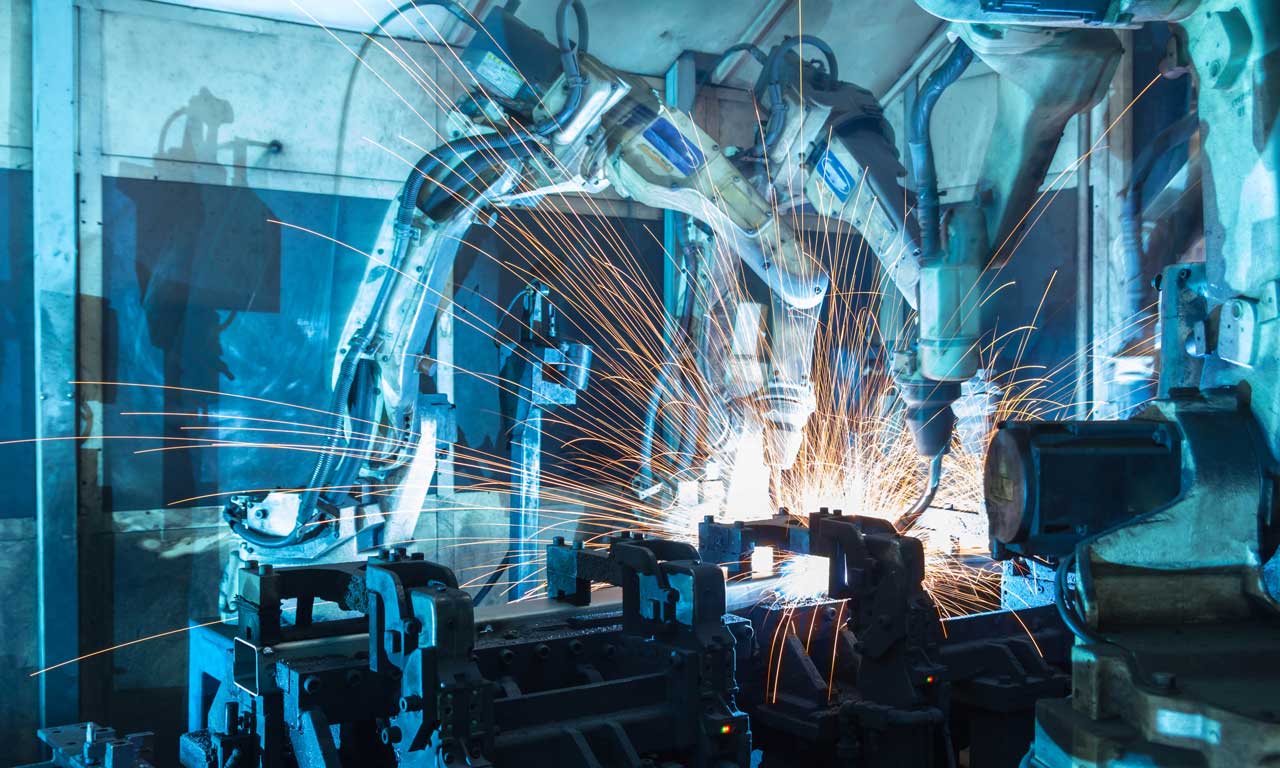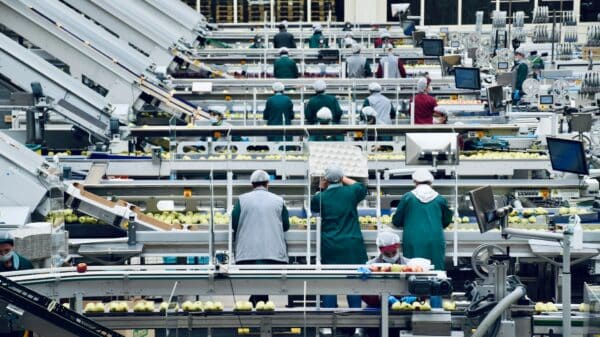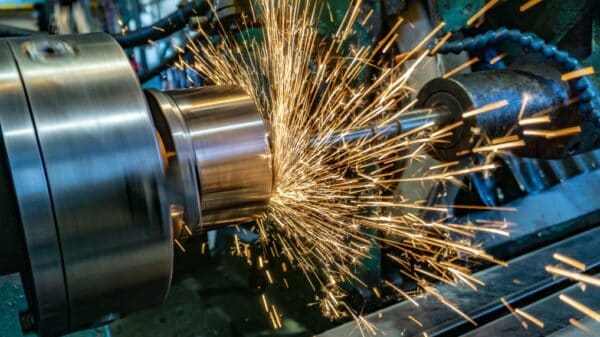The process of transforming raw materials into final products is called manufacturing. The manufacturing process involves a series of guided steps and a designed blueprint to obtain desired quality products. Those goods can then be brought into use immediately.
There was a time when the ‘hows’ and ‘whens’ in manufacturing were not given their due importance. However, the time has transformed tremendously today and technological advancements are playing a vital role in precise execution of various processes. Let’s keep this part for the later stage of discussion and first focus on the major types of manufacturing processes:
1. Process Manufacturing- This type of manufacturing process involves a formula or recipe. The umbrella of process manufacturing covers industries like food & beverages, chemicals, pharmaceuticals, cosmetics, paints, foundry, nutraceuticals, etc. Process manufacturing demands attention to the details of ingredients, their quantity, consistency, physical & chemical properties, and the order of addition to the bulk. The master plan of production is designed well in advance and in order to achieve the desired output and consistency, it is produced in batches in the process cell. It involves many stages starting with R&D, formulation, production, quality check, to packaging, compliance meeting, and delivery and so on. Though interconnected, all these steps have different focal points to be taken care of.
2. Discrete Manufacturing- It is all about assembling things, and making goods that are exact and can be counted in whole numbers. The products are typically manufactured in individually defined lots; a discrete product is the result of value addition at each successive step. Thus, in discrete manufacturing, the product is made by following sequential steps and subsequently assembling the parts one after the other to obtain a final product. The most common examples of discrete manufacturing are automobiles, cycles, and battery manufacturing. Continuous or repetitive flow manufacturing is another name for discrete manufacturing. It is based on the production orders and product specifications that change frequently and vary from order to order.
3. Assemble to Order- The Assemble to Order (ATO) strategy works when you have to deliver the order at lightning fast speed to the customer. Tight control over order management or assembling parts along with well-planned resource schedule is needed to support easy and fast order customization. In ATO manufacturing, success relies on your ability to supply right goods, at the right place and right time. Not to forget, perfect coordination and even information flow between departments is needed to make it happen.
4. Batch Manufacturing- It is more or less like process manufacturing, but involves extensive inventory planning to have greater control over manufactured goods and associated costs. The manufacturers also need a 360-degree visibility for capacity scheduling and optimum utilization of all the resources during batch production. Moreover, purchasing and storing of raw materials holds equal importance as balancing the stock levels for timely order fulfilment.
5. Engineer to Order- It is an individual project-based process, where every customer is different and every order is unique. Therefore, accurate forecasting on prospective orders and costs becomes impossible. Here, delays can be expensive and can have a lasting impact on your business. Hence, streamlined quote to invoice process is very much needed.
6. Job Shop Manufacturing- It deals with manufacturing of a variety of custom products in small batches. In the job shop process flow, the products require a unique set-up and sequencing of process steps. Job shops are usually employed to produce custom parts for other businesses. Such varied projects create cash flow challenges and one needs efficient planning of materials, scrap, and costs along with simultaneously balancing supplier lead times and customer demands.
7. Make to Order- In Make to Order (MTO) scenario, manufacturing starts only after customer order is received. The actual planning and development of the product proceeds based on the customization put forward by the customer. It is also called a pull type supply chain and a main principle of lean manufacturing. A solid information link between sales and delivery channel is must to manage costs and improve company’s profitability.
8. Make to Stock- Make to Stock (MTS) is a traditional production strategy, adopted by most of the manufacturers to fulfil consumer demands, as and when they arise. MTS mode of manufacturing functions on accurate forecast of demand in order to determine how much should be produced to stock so that the demands are met and wastage is minimized. MTS business is subjected to a lot of market fluctuations, and demands a real-time visibility into supply chain, logistics and accounting.
9. Mixed Manufacturing- It is a combination of two or more of the above mentioned processes. Goods like medical devices and special instruments for research/higher studies like barometer, semiconductors, and solar cells are derived by the planned permutation and measured amalgamation of both process and discrete manufacturing. The chemicals used in the products are manufactured employing a formula-based manufacturing, while assembling all the parts to make one complete unit employs discrete manufacturing. Mixed manufacturing is quite complex as it has to take care of the peculiarities of process, discrete, and other types of manufacturing; else the quality of the product is compromised and customer experience suffers.
When the competition wasn’t as fierce and emphasis on quality wasn’t as impactful as it is in the current times, all the aforementioned manufacturing processes were easily executed as per manufacturer’s convenience. But today, when the manufacturing scene has changed drastically, these processes need the due consideration of precision and perfection to match the quality standards and customer’s specific needs.
New age ERP solution is designed to meet the specific challenges faced by these different manufacturing processes. Believing in “One size doesn’t fit all”, and realizing the variation in the nature of different manufacturing types, BatchMaster offers different solutions to cater to their unique and peculiar needs.
Wide-ranging ERP products from BatchMaster are designed in such a way that they not only cater to the unique needs of different manufacturing types, but also the entire landscape of their supply chain starting with product development to formulation/ECM, planning, procurement, production/assembling to quality, packaging, compliance, sales & finances.
Sanjay Panjwani, Co-founder & MD BatchMaster Software. A technology enthusiast, he is the brains behind BatchMaster ERP- ERP Software for process manufacturers. An avid outdoorsman by the weekends, he enjoys reading & playing sports too.

1 Comment
Leave a Reply
Cancel reply
Leave a Reply
This site uses Akismet to reduce spam. Learn how your comment data is processed.






















































































































































































Borisa Nikita
February 3, 2019 at 8:41 am
I like the detail you have given. it is extremely worth the perusing. As I have as of late worked in a building firm and this data truly gone assistance me well.